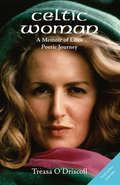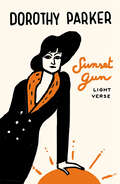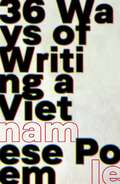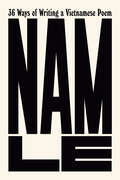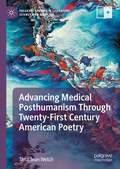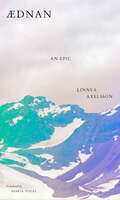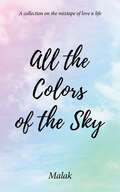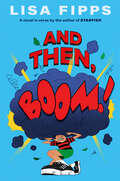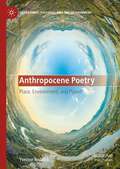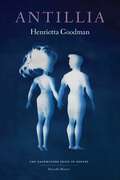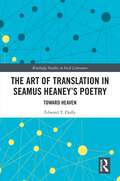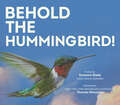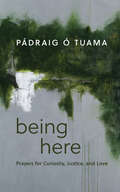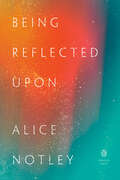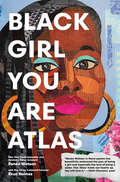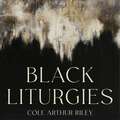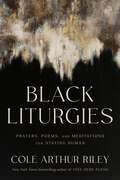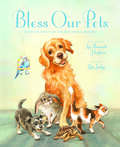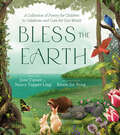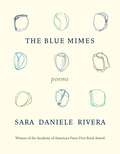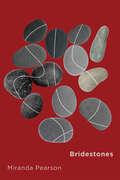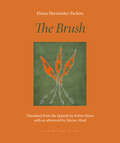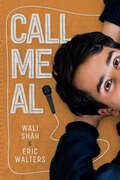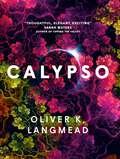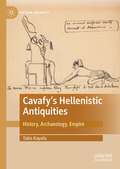- Table View
- List View
Celtic Woman: A Memoir of Life's Poetic Journey
by Treasa O'DriscollCeltic Woman explores with open honesty and engaging irony how cycles of personal discovery have connected international performing artist Treasa O’Driscoll to heaven and earthbut not the way you’d expect. This surprising memoir of an Irish woman attuned to poetic updrafts and spiritual downloads in the lives of real people, many of them celebrities in Ireland and North America she counts as personal friends, exudes her Celtic heritage on every page. Her encounters in life have been testing, tragic, romantic, and highly comic. O’Driscoll’s life entwines with musicians, poets, teachers, artists, actors, farmers, unexpected strangers and familiar drunkards. Their lives all become a single interwoven tapestry of common meaning connected at the level of the soul.
Sunset Gun: Light Verse (Vintage Classics)
by Dorothy ParkerNow available as a stand-alone edition, the famous humorist&’s second collection of poetry ranges from lighthearted self-deprecation to gleefully acid-tongued satire and dark comedy.One of the Jazz Age&’s most beloved poets, Dorothy Parker earned her reputation as the wittiest woman in America with her popular light verse, which was regularly published in Vanity Fair, Life, and The New Yorker. Her debut poetry collection, Enough Rope, was a runaway bestseller, and she followed it up in 1928 with the equally delightful collection Sunset Gun. The poems gathered here range from barbed satires to light-hearted laments, all laced with Parker&’s unmistakable sense of humor, one that manages to be both cynical and sparkling.Thought for a Sunshiny MorningIt costs me never a stab nor squirm To tread by chance upon a worm.&“Aha, my little dear,&” I say,&“Your clan will pay me back some day.&”
36 Ways of Writing a Vietnamese Poem
by Nam LeFifteen years after his best-selling, award-winning collection of stories The Boat, Nam Le returns to his great themes of identity and representation in a virtuosic debut book of poetry36 Ways of Writing a Vietnamese Poem, says Le, a Vietnamese refugee to Australia, is &‘the book I need to write. The book I've been writing my whole life&’. This book-length poem is an urgent, unsettling reckoning with identity and the violence of identity, embedded with racism, oppression and historical trauma. But it also addresses the violence in those assumptions – of being always assumed to be outside one&’s home, country, culture or language. And the complex violence, for the diasporic writer who wants to address any of this, of language itself. Making use of multiple tones, moods, masks and camouflages, Le&’s poetic debut moves with unpredictable and destabilising energy between the personal and political, honouring every convention of diasporic literature – in a virtuosic array of forms and registers – before shattering the form itself. Like The Boat, 36 Ways of Writing a Vietnamese Poem conjures its own terms of engagement, escapes our traps, slips our certainties. As self-indicting as it is scathing, hilarious as it is desperately moving, this is a singular, breakthrough book. 'Nam Le takes the English language to pieces and reassembles it with a virtuoso ease not seen since Finnegans Wake' J.M. Coetzee 'A masterly performance' David Malouf 'These poems seethe and sing' Cathy Park Hong
36 Ways of Writing a Vietnamese Poem
by Nam LeAn explosive, devastating debut book of poetry from the acclaimed author of The BoatIn his first international release since the award-winning, best-selling The Boat, Nam Le delivers a shot across the bow with a book-length poem that honors every convention of diasporic literature—in a virtuosic array of forms and registers—before shattering the form itself.In line with the works of Claudia Rankine, Cathy Park Hong, and Theresa Hak Kyung Cha, this book is an urgent, unsettling reckoning with identity—and the violence of identity. For Le, a Vietnamese refugee in the West, this means the assumed violence of racism, oppression, and historical trauma.But it also means the violence of that assumption. Of being always assumed to be outside one&’s home, country, culture, or language. And the complex violence—for the diasporic writer who wants to address any of this—of language itself.Making use of multiple tones, moods, masks, and camouflages, Le&’s poetic debut moves with unpredictable and destabilizing energy between the personal and the political. As self-indicting as it is scathing, hilarious as it is desperately moving, this is a singular, breakthrough book.
Advancing Medical Posthumanism Through Twenty-First Century American Poetry (Palgrave Studies in Literature, Science and Medicine)
by Tana Jean WelchAdvancing Medical Posthumanism Through Twenty-First Century American Poetry places contemporary poetics in dialogue with posthumanism and biomedicine in order to create a framework for advancing a posthuman-affirmative ethics within the culture of medical practice. This book makes a case for a posthumanist understanding of the body—one that sees health and illness not as properties possessed by individual bodies, but as processes that connect bodies to their social and natural environment, shaping their capacity to act, think, and feel. Tana Jean Welch demonstrates how contemporary American poetry is specifically poised to develop a pathway toward a posthuman intervention in biomedicine, the field of medical humanities, medical discourse, and the value systems that guide U.S. healthcare in general.
Aednan: An Epic
by Linnea AxelssonThe winner of Sweden&’s most prestigious literary award makes her American debut with an epic, multigenerational novel-in-verse about two Sámi families and their quest to stay together across a century of migration, violence, and colonial trauma.In Northern Sámi, the word Ædnan means the land, the earth, and my mother. These are all crucial forces within the lives of the Indigenous families that animate this groundbreaking book: an astonishing verse novel that chronicles a hundred years of change: a book that will one day stand alongside Halldór Laxness&’s Independent People and Sigrid Undset&’s Kristin Lavransdatter as an essential Scandinavian epic.The tale begins in the 1910s, as Ristin and her family migrate their herd of reindeer to summer grounds. Along the way, forced to separate due to the newly formed border between Sweden and Norway, Ristin loses one of her sons in the aftermath of an accident, a grief that will ripple across the rest of the book. In the wake of this tragedy, Ristin struggles to manage what&’s left of her family and her community.In the 1970s, Lise, as part of a new generation of Sámi grappling with questions of identity and inheritance, reflects on her traumatic childhood, when she was forced to leave her parents and was placed in a Nomad School to be stripped of the language of her ancestors. Finally, in the 2010s we meet Lise&’s daughter, Sandra, an embodiment of Indigenous resilience, an activist fighting for reparations in a highly publicized land rights trial, in a time when the Sámi language is all but lost.Weaving together the voices of half a dozen characters, from elders to young people unsure of their heritage, Axelsson has created a moving family saga around the consequences of colonial settlement. Ædnan is a powerful reminder of how durable language can be, even when it is borrowed, especially when it has to hold what no longer remains. &“I was the weight / in the stone you brought / back from the coast // to place on / my grave,&” one character says to another from beyond the grave. &“And I flew above / the boat calling / to you all: // There will be rain / there will be rain.&”
All the Colors of the Sky: A collection on the mixtape of love & life
by MalakLike the ever-changing sky, our emotions are a vivid spectrum. From joy to sorrow, from youth to age, from dawn to dusk and the moments in between – our feelings paint a canvas as varied as the sky itself. We feel the warmth of love, the chill of indifference, the solitude of loneliness, and the comfort of companionship. From fiery reds to calming blues, vibrant orchids to muted lavenders, we embody every hue and shade. We are the brilliant sunrise, the melancholic sunset, and the mysterious twilight. All the Colors of the Sky is a collection that captures the essence of love and life, weaving tales that transcend the obvious, delving deep into the unseen emotions and untold stories. Experience the vastness, the beauty, the depth. Experience All the Colors of the Sky.
And Then, Boom!
by Lisa FippsA gripping new novel in verse by the author of the Printz Honor-winning Starfish, featuring a poverty-stricken boy who bravely rides out all the storms life keeps throwing at himJoe Oak is used to living on unsteady ground. His mom can&’t be depended on as she never stays around long once she gets &“the itch,&” and now he and his beloved grandmother find themselves without a home. Fortunately, Joe has an outlet in his journals and drawings and takes comfort from the lessons of comic books—superheroes have a lot of &“and then, boom&” moments, where everything threatens to go bust but somehow they land on their feet. And that seems to happen a lot to Joe too, as in this crisis his friend Nick helps them find a home in his trailer park. But things fall apart again when Joe is suddenly left to fend for himself. He doesn&’t tell anyone he&’s on his own, as he fears foster care and has hope his mom will come back. But time is running out—bills are piling up, the electricity&’s been shut off, and the school year&’s about to end, meaning no more free meals. The struggle to feed himself gets intense, and Joe finds himself dumpster diving for meals. He&’s never felt so alone—until an emaciated little dog and her two tiny pups cross his path. And fate has even more in store for Joe, because an actual tornado is about to hit home—and just when it seems all is lost, his life turns in a direction that he never could have predicted.
Anthropocene Poetry: Place, Environment, and Planet (Literatures, Cultures, and the Environment)
by Yvonne ReddickAnthropocene Poetry: Place, Environment and Planet argues that the idea of the Anthropocene is inspiring new possibilities for poetry. It can also change the way we read and interpret poems. If environmental poetry was once viewed as linked to place, this book shows how poets are now grappling with environmental issues from the local to the planetary: climate change and the extinction crisis, nuclear weapons and waste, plastic pollution and the petroleum industry. This book intervenes in debates about culture and science, traditional poetic form and experimental ecopoetics, to show how poets are collaborating with environmental scientists and joining environmental activist movements to respond to this time of crisis. From the canonical work of Ted Hughes and Seamus Heaney, to award-winning poets Alice Oswald, Pascale Petit, Kei Miller, and Karen McCarthy Woolf, this book explores major figures from the past alongside acclaimed contemporary voices. It reveals Seamus Heaney’s support for conservation causes and Ted Hughes’s astonishingly forward-thinking research on climate change; it discusses how Pascale Petit has given poetry to Extinction Rebellion and how Karen McCarthy Woolf set sail with scientists to write about plastic pollution. This book deploys research on five poetry archives in the UK, USA and Ireland, and the author’s insider insights into the commissioning processes and collaborative methods that shaped important contemporary poetry publications. Anthropocene Poetry finds that environmental poetry is flourishing in the face of ecological devastation. Such poetry speaks of the anxieties and dilemmas of our age, and searches for paths towards resilience and resistance.
Antillia (The Backwaters Prize in Poetry Honorable Mention)
by Henrietta GoodmanWinner of the Backwaters Prize in Poetry Honorable Mention The title poem of this collection refers to the phantom island of Antillia, included on maps in the fifteenth century but later found not to exist. The ghosts that haunt this collection are phantom islands, moon lakes, lasers used to clean the caryatids at the Acropolis, earlier versions of the self, suicides, a madam from the Old West, petroleum, snapdragons, pets, ice apples, Casper, and a &“resident ghost&” who makes the domestic realm of &“the cradle and the bed&” uninhabitable. The ghosts are sons, fathers &“asleep in front of the TV,&” and a variety of exes—&“lost boys&” with names like The Texan and Mr. No More Cowboy Hat whom Henrietta Goodman treats with snarky wit but also with grief, guilt, and love. Although memories pervade this collection, these poems also look forward and outward into a world where social inequality and environmental disaster meet the possibility of metamorphosis.
The Art of Translation in Seamus Heaney’s Poetry: Toward Heaven (Routledge Studies in Irish Literature)
by Edward T. DuffyThe Art of Translation in Seamus Heaney’s Poetry is a critical study of the poet's later work. While exploring his practice as a translator, it also traces his increasing preoccupation with the possibilities and conditions of translation in the theological sense of being lifted up in spirit. To the work of this philosophical poet, who would be both “earthed and heady” this book brings the insights of ordinary language philosophy as practiced by Stanley Cavell. It devotes separate chapters to Station Island and three later collections: Seeing Things, Electric Light and Human Chain. The first of these addresses the most fundamental change in Heaney’s life when he acknowledges the “need and chance to re-envisage” his Irish-Catholic upbringing; it is also replete with both the activity and the trope of translation. Published seven years later, Seeing Things begins with a translation of Virgil’s golden bough episode and ends with a similar crossing over into the underworld by Dante. Heaney transforms both into poems about poetry. In Electric Light, Heaney returns to Virgil, but now he concentrates not on the hero of the Aeneid but on Virgil's earlier efforts in pastoral, a mode of writing that Heaney takes as a model for his own time and place of “devastated order.” Heaney returns to the Aeneid in Human Chain, but this time around he gives all his attention to the scene of the human souls in Elysium seeking rebirth and turns it into an image for the need and chance of pronouncing “a final Yes” to our world and our place in it.
Behold the Hummingbird
by Suzanne SladeLyrical text and gorgeous illustrations take flight in this exploration of the tiny, gorgeous hummingbirds and its astonishing abilities.Hummingbirds are tiny and pretty, so you might find yourself taking them for granted. But these little birds are remarkable, fierce, and talented. In Behold the Hummingbird, readers will learn about species that can hover like a helicopter, fly backwards and upside down, and consume half their body weight in a single day.
Being Here: Prayers for Curiosity, Justice, and Love
by Pádraig Ó Tuama&“What is prayer? It&’s not a passport to heaven. If anything, it&’s a way of seeing here, a way of being here.&” In Being Here, acclaimed poet and theologian Pádraig Ó Tuama offers a thoughtful collection of prayers and essays to focus attention in a world full of distractions. Featuring 31 collects—an ancient five-fold form of prayer—this unconventional devotional invites readers into a daily rhythm of connection and creativity. &“The hope is that you can turn to a prayer with the story of your life, and in the little emptiness you create there, hear something, discern something, feel something that&’s connecting you to other things seeking out connection with you.&” Each day&’s prayers are presented alongside scripture and illuminating literary texts. The book concludes with four incisive essays on politics, community, and the contours of contemporary life as seen through biblical literature. Pádraig also teaches readers how they can embrace poetic form to expand their practice of prayer. In these pages, spiritual wayfarers will find a place to both rest and grow their capacity for curiosity, justice, and love. This is a way of living / That&’s worth living daily.
Being Reflected Upon (Penguin Poets)
by Alice NotleyA memoir in verse from one of America's legendary poetsIn a New York Times review of Alice Notley&’s 2007 collection In the Pines, Joel Brouwer wrote that &“the radical freshness of Notley&’s poems stems not from what they talk about, but how they talk, in a stream-of-consciousness style that both describes and dramatizes the movement of the poet&’s restless mind, leaping associatively from one idea or sound to the next.&” Notley&’s new collection is at once a window into the sources of her telepathic and visionary poetics, and a memoir through poems of her Paris-based life between 2000 and 2017, when she finished treatment for her first breast cancer. As Notley wrote these poems she realized that events during this period were connected to events in previous decades; the work moves from reminiscences of her mother and of growing up in California to meditations on illness and recovery to various poetic adventures in Amsterdam, Berlin, Prague, and Edinburgh. It is also concerned with the mysteries of consciousness and the connection between the living and dead, &“stream-of-consciousness&” teasing out a lived physics or philosophy.
Black Girl You Are Atlas
by Renée WatsonA thoughtful celebration of Black girlhood by award-winning author and poet Renée Watson.In this semi-autobiographical collection of poems, Renée Watson writesabout her experience growing up as a young Black girl at the intersections of race, class, and gender.Using a variety of poetic forms, from haiku to free verse, Watson shares recollections of her childhood in Portland, tender odes to the Black women in her life, and urgent calls for Black girls to step into their power. <p><p>Black Girl You Are Atlas encourages young readers to embrace their future with a strong sense of sisterhood and celebration. With full-color art by celebrated fine artist Ekua Holmes throughout, this collection offers guidance and is a gift for anyone who reads it.
Black Liturgies: Prayers, poems and meditations for staying human
by Cole Arthur RileyIn the summer of 2020, Cole Arthur Riley was desperate for a spirituality she could trust. Amidst ongoing national racial violence, the isolation of the pandemic, and a surge of anti-Black rhetoric in many Christian spaces, she began dreaming of a harbour for a more human, more liberating expression of faith. She went on to create Black Liturgies, a digital project that connects spiritual practice with Black emotion, memory, and the Black body.In this book, she deepens the work of that project, bringing together new prayers, letters, poetry, meditation questions, breath practice, and the writings of Black literary ancestors to offer 43 liturgies that can be practised individually or as a community. With a poet's touch and a sensitivity that has made her one of the most important spiritual voices at work today, Riley invites readers to reflect on their own experiences of wonder, rest, rage, and repair, while also including liturgies for holidays like Lent, Advent and Mother's Day.For those healing from spiritual spaces that were more violent than loving; for those who have escaped the trauma of white Christian nationalism, religious homophobia, and transphobia; for anyone asking what it means to be human in a world of both beauty and terror; Black Liturgies is a work of healing and liberation, and a vision for what might be.
Black Liturgies: Prayers, poems and meditations for staying human
by Cole Arthur RileyIn the summer of 2020, Cole Arthur Riley was desperate for a spirituality she could trust. Amidst ongoing national racial violence, the isolation of the pandemic, and a surge of anti-Black rhetoric in many Christian spaces, she began dreaming of a harbour for a more human, more liberating expression of faith. She went on to create Black Liturgies, a digital project that connects spiritual practice with Black emotion, memory, and the Black body.In this book, she deepens the work of that project, bringing together new prayers, letters, poetry, meditation questions, breath practice, and the writings of Black literary ancestors to offer 43 liturgies that can be practised individually or as a community. With a poet's touch and a sensitivity that has made her one of the most important spiritual voices at work today, Riley invites readers to reflect on their own experiences of wonder, rest, rage, and repair, while also including liturgies for holidays like Lent, Advent and Mother's Day.For those healing from spiritual spaces that were more violent than loving; for those who have escaped the trauma of white Christian nationalism, religious homophobia, and transphobia; for anyone asking what it means to be human in a world of both beauty and terror; Black Liturgies is a work of healing and liberation, and a vision for what might be.
Bless Our Pets: Poems of Gratitude for Our Animal Friends
by Lita Judge&“Perfect for animal lovers . . . filled with raw emotion and love for a diverse collection of animals who unconditionally love us back.&” — Booklist &“Sure to warm the cockles of any pet owner&’s heart.&” — Kirkus ReviewsA celebration of creatures—and one of the last books edited by beloved children&’s poet Lee Bennett Hopkins. In this adorable, often amusing collection, Rebecca Kai Dotlich, Lois Lowry, and twelve other poets give thanks for those who bark, purr, chitter, and slither. The poems feature fourteen different animal companions, including a cat snoozing in her bed, a goldfish dancing in her bowl, and a gerbil nestling in an overall pocket. Illustrated in warm, tender detail by Lita Judge, Bless Our Pets captures the charms—and antics—of pets and the people who love them. From puppies to mice to turtles to ponies, this endearing anthology expresses children&’s gratitude for creatures big and small. Bless Our Pets is the perfect tribute to the friends who bring so much joy into our everyday lives. Poems by… • Ann Whitford Paul • Rebecca Kai Dotlich • Linda Trott Dickman • Eric Ode • Ralph Fletcher • Sarah Grace Tuttle • Kristine O&’Connell George • Darren Sardelli • B.J. Lee • Charles Ghigna • Lois Lowry • Prince Redcloud • Joan Bransfield Graham • Lee Bennett Hopkins
Bless the Earth: A Collection of Poetry for Children to Celebrate and Care for Our World
by June Cotner Nancy Tupper LingA beautifully illustrated collection of poems and prayers to help children develop an appreciation for the natural worldBless the Earth, our faithful friend,her mountain range and river bend,her forest green and canopy,the hidden world of bended trees. Bless the Earth shows the miracle of our planet Earth through beautiful imagery and delightful poetry, calling all people, young and old, to care for our wonderful world. This sweet and welcoming anthology for children ages 3-7 knits together our common humanity and the natural world in an engaging way that is simple for young readers to understand.Bless the Earth contains approximately sixty selections of original as well as classic poems, divided into five chapters each:Dreams for My WorldEarth and SkyAll Creatures, Big and SmallSeasonsCaring for Our World Bless the Earth calls us again and again to understand how important it is to care for our world, respect our neighbors—humans, plants, and animals alike—and reimagine a world that is healthy and whole.
The Blue Mimes: Poems
by Sara Daniele RiveraSara Daniele Rivera’s award-winning debut is a collection of sprawling elegy in the face of catastrophic grief, both personal and public. From the lead-up to the 2016 presidential election through the COVID-19 pandemic, these poems memorialize lost loved ones and meditate on the not-yet gone—all while the wider-world loses its sense of connection, safety, and assurance. In those years of mourning, The Blue Mimes is a book of grounding and heartening resolve, even and especially in the states of uncertainty that define the human condition.Rivera’s poems travel between Albuquerque, Lima, and Havana, deserts and coastlines and cities, Spanish and English—between modes of language and culture that shape the contours of memory and expose the fault lines of the self. In those inevitable fractures, with honest, off-kilter precision, Rivera vividly renders the ways in which the bereft become approximations of themselves as a means of survival, mimicking the stilted actions of the people they once were. Where speech is not enough, this astonishing collection finds a radical practice in continued searching, endurance without promise—the rifts in communion and incomplete pictures that afford the possibility to heal.
Bridestones (Hugh MacLennan Poetry Series)
by Miranda PearsonCome, anguish. Help us manage / the plainsong of an open shore, / its language of high tide rich and close, / close and hard to see.The early elegiac poems in Bridestones emerge from the borderlands between life and death, loss and renewal. Drawing on dreams, opera, and visual art, and employing symbolist and playfully surreal imagery, Miranda Pearson questions the ways we tend and grieve – for each other and our environment.Beginning with a sudden bereavement, the first section ends with a long poem, “Clearance,” that depicts the experience of emptying and departing a home – the physicality of a house serving as a vehicle for processing grief. Pearson writes on family trauma, illness, love, and desire with a pervading sense of hauntedness, compressed, lyrical accounts of complex and ambivalent terrain. The impact of a pandemic lurks in the background, and themes of fear run through much of this collection, with poems exploring how we face our fears – or deny and avoid them – and, ultimately, how we grow and adapt.Through meditations on art, myth, archaeology, ceremony, and death, Pearson reveals the veil between life and death when drawn to its thinnest. Like the hovering falcon depicted in “A Song of Roses,” the poems view the world from above: “if earth is body, and sky – God help us, spirit.”
The Brush: Poems
by Eliana Hernández-PachónA wise, visionary debut on ecological and human resistance, perfect for readers of Joy Harjo and Tracy K. Smith, and fans of the earth-body artwork of Ana MendietaThe Brush is an incantatory, fearless exploration of collective trauma – and its horrific relevance in today&’s Colombia, where mass killings continue. Told from the voices Pablo, Ester, and the Brush itself, Hernández-Pachón&’s poem is an astounding response to a traumatic event in recent Colombian history: the massacre in the village of El Salado between February 16 and 21, 2000. Paramilitary forces tortured and killed sixty people, interspersing their devastating violence with music in the town square.Pablo Rodríguez steps thirteen paces out into the night and buries a wooden box. Its contents: a chain, a medallion, a few overexposed photographs, and finally, a deed. He burrows into the ground without knowing quite why, but with the certainty of a heavy change pressing through the air, of fear settling &“like a cat in his throat.&” Meanwhile, his wife Ester – a sharpshooter and keeper of all village secrets – slips into her fifth dream of the night. As Ester tosses and Pablo pats his fresh mound of earth, another character emerges in Eliana Hernández-Pachón&’s vivid and prophetic triptych.The Brush is a tangled grove, a thicket of vines, an orchid pummeled with rain. It is also an extraordinary depiction of ecological resistance, of the natural world that both endures human cruelty and lives on in spite of it.
Call Me Al
by Wali Shah Eric WaltersAli is an eighth-grade kid with a lot going on. Between the pressure from his immigrant parents to ace every class, his crush on Melissa, who lives in the rich area of town while he and his family live in a shabby apartment complex, and trying his best to fit in with his friends, he feels like he’s being pulled in too many different directions. But harder still, Ali is becoming increasingly aware of the racism around him. Comments from his friends about Pakistani food or his skin color are passed off as jokes, but he doesn’t find them funny. And when Ramadan starts, Ali doesn’t tell anyone he’s fasting because it just seems easier. Luckily he finds solace in putting his feelings into words—and poems. But his father is dead set against him using art as a distraction when he’s got schoolwork and a future career as a doctor to focus on. Ali’s world changes when he, his mom and his little brother are assaulted by some racist teens. Ali must come to terms with his roiling feelings about his place in the world, as a Pakistani immigrant, a Muslim and a teenager with his whole life ahead of him. With help from his grandfather, an inspiring teacher and his friend, Ali leans on his words for strength. And eventually he finds his true voice.
Calypso
by Oliver K. Langmead"Ambitious and immersive...an elegantly told meditation on how we can&’t leave ourselves behind." -Esquire Magazine - The Best Sci-Fi Books of 2024A ground-breaking, mind-bending and wildly imaginative epic verse revolution in SF. A saga of colony ships, shattering moons and cataclysmic war in a new Eden. Truly unforgettable and richly lyrical eco-fiction, for fans of Kim Stanley Robinson, Adrian Tchaikovsky, and Jeff VanderMeer.Rochelle wakes from cryostasis to take up her role as engineer on the colony ark, Calypso. But she finds the ship has transformed into a forest, populated by the original crew&’s descendants, who revere her like a saint. She travels the ship with the Calypso&’s creator, the enigmatic Sigmund, and Catherine, a bioengineered marvel who can commune with the plants, uncovering a new history of humanity forged while she slept. She discovers a legacy of war between botanists and engineers. A war fought for the right to build a new Earth – a technological paradise, or a new Eden in bloom, untouched by mankind&’s past.And Rochelle, the last to wake, holds the balance of power in her hands.
Cavafy's Hellenistic Antiquities: History, Archaeology, Empire (The New Antiquity)
by Takis KayalisThis book reinterprets C. P. Cavafy’s historical and archaeological poetics by correlating his work to major cultural, political and sexualized receptions of antiquity that marked the turn of the 20th century. Focusing on selected poems which stage readings of Hellenistic and late ancient texts and material objects, this study probes the poet's personal library and archive to trace his scholarly sources and scrutinize their contribution to his creative practice. A new understanding of Cavafy's historicism emerges by comparing his poetics to a broad array of discourses and intellectual pursuits of his time; these range from antiquarianism, physiognomy and Egyptomania to cultural appropriations of the classics which sought to legitimate British colonial rule as well as homoerotic desire. As this volume demonstrates, Cavafy embraced antiquarianism as an empathetic and passionate way of relating to the past and shaped it into a method that allowed his poetry to render modern meanings to Hellenistic antiquities.
